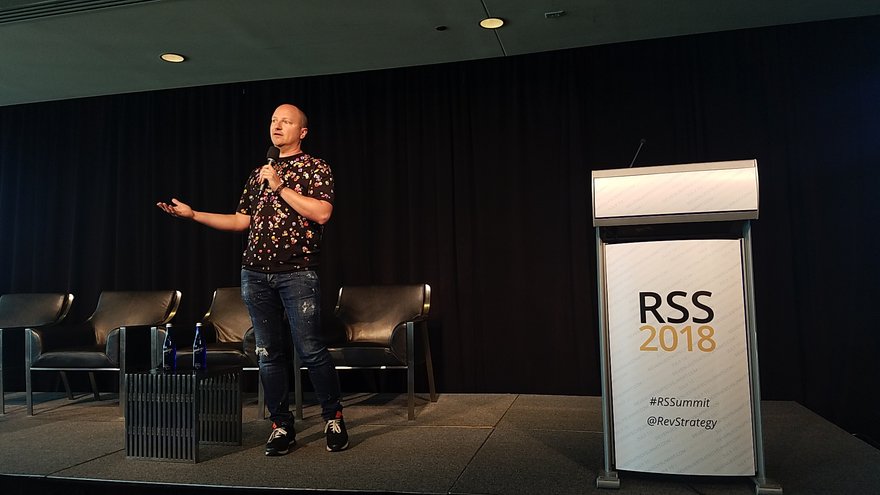by Elliott Mest
In the News
Revenue Strategy Summit explores the opportunities behind disruption
by Elliott Mest
image-block-outer-wrapper
layout-caption-below
design-layout-inline
"
data-test="image-block-inline-outer-wrapper"
>
sqs-block-image-figure
intrinsic
"
style="max-width:880px;"
>
class="image-block-wrapper"
data-animation-role="image"
data-animation-override
>
>

Patrick Bosworth, co-founder and CEO of revenue management software developer Duetto, addresses the Revenue Strategy Summit in Washington, D.C.
Everyone wants to be a disruptor, and with technology giants Amazon, Google and Alibaba moving into the hotel business there is no better time to learn from the industry’s biggest risk takers. That’s why Patrick Bosworth, co-founder and CEO of revenue management software developer Duetto, said the Revenue Strategy Summit was founded in the first place.
The event, now in its sixth year, took place on July 10 in Washington, D.C., with the goal of educating hoteliers on revenue-management strategy and how to remain successful in a world dominated by rapid disruption. Even though hotel companies have been outmaneuvered in recent years by nimble digital entities such as online travel agencies and home-sharing websites, Bosworth said there is still much reason for positivity.
“It’s my belief that hoteliers have been so far behind in their ability to create value in many channels that they have focused on the channels they have been able to control, where they have not seen erosion,” Bosworth said. “As new big entrants come in, they will compete for the same customers that Expedia and Booking.com do. It’s no longer a duopoly, and hotels have been able to leverage data to compete for those customers, as well.”
During a panel discussion, Alexander Pyhan, VP of distribution, OTA, meta and wholesale at Marriott International, said that with so many options for bookings open to consumers there must be a conscious reason behind every purchase, as well as a reason behind a consumer’s choice in brand. This reason can be something as simple as price or as complicated as a long-term relationship with a brand, but in many cases Pyhan said the power of loyalty and loyalty programs remains underappreciated.
“We need to create an ecosystem where the consumer returns,” Pyhan said. “The consumer wants a high-quality product, but they also want a seamless guest experience. That’s how brands need to evolve, not only from a hotel perspective but from a transactional perspective.”
Of course, such a simple premise comes with hundreds of operational and logistical hurdles, one of which is data. Pyhan referred to data as the “new oil,” and hotel companies must work harder than efficient data collectors like Google and Amazon to understand their customers. While it may not be possible to control whether or not a guest ultimately chooses to share his or her data with your company, it may be more pertinent to get a handle on your hotel’s online presence and how guests encounter your business on the internet.
“It’s hard for any brand owner or hotelier to understand where their inventory is being displayed online,” Pyhan said. “It’s frightening to invest billions in brand development, and you don’t know where it’s being displayed!”




